Why Modern Stress is Wrecking Women's Hormones & What to Do

Stress is something we all deal with—and we’re always looking for ways to ease it so we can feel better. Modern life puts so much pressure on us to manage so many things at once: parenting, work, paying the bills, health issues that come up, worrying about social and environmental issues, all while we are just trying to keep ourselves and our families healthy.
Not all stress is bad. In fact, it’s a normal response that can actually help us—keeping us alert, even adding excitement to life, and pushing us to grow. The problem comes when stress sticks around for too long or gets too intense. That’s when it starts impacting our health and can lead to all kinds of issues. (5)
Stress affects us all, but it can be even more intense for women. Why? Because stress messes with hormones—and women’s hormones are constantly shifting. Unlike men, whose hormones stay steady, women’s hormones change throughout the month and across different life stages. When you add in pregnancy, childbirth and all the responsibilities that come with those roles, it’s no wonder stress can feel overwhelming.
What is stress?
Stress is that feeling when your brain is juggling a million things—school drop-offs, work deadlines, dinner plans, and the never-ending laundry pile. It’s your body’s way of saying, “Whoa, this is a lot!” And honestly? That’s normal. A little stress can even be helpful—it gives us energy to power through a busy day or stay alert when our families need us.
But here’s the catch: stress isn’t meant to stick around forever. When it does - when the pressure never lets up - it shifts from helpful to harmful. That’s when we start feeling run-down, moody, or like we’re running on fumes.
For women, this gets even trickier because our hormones are already on a rollercoaster - monthly cycles, pregnancy, postpartum, perimenopause. (5) Add chronic stress to the mix, and it’s like throwing gasoline on a fire. Our bodies crave balance, but modern life often feels like the opposite of balance.
So, stress itself isn’t the enemy—it’s the constant, unresolved kind that wears us down. And that’s what we’re here to tackle.
What are hormones & why do they matter
Hormones are tiny chemical messengers that keep everything running smoothly. They tell our organs what to do and when to do it. From our metabolism and blood sugar, to our sleep cycles, mood, and even how our bodies handles stress—hormones are behind the scenes making it all happen.
Even small changes in these messages can throw things off. That’s why when hormones get out of balance, we feel it. Big time. Fatigue, mood swings, irregular cycles, trouble sleeping. Sound familiar?
Hormones are part of the endocrine system, which is basically our body’s communication network. Glands like our adrenal glands, thyroid, and ovaries release hormones into our bloodstream, sending signals to organs like the liver and kidneys. It’s an amazing system—until stress barges in and starts messing with the signals.
Bottom line: hormones aren’t just about “periods” or “pregnancy.” They impact everything from your energy and digestion to your immune system and mental health. When they’re balanced, life feels good. When they’re not? It can feel like chaos. (4)
The difference between male & female hormones
Everyone has hormones. But, the way they cycle is totally different for men and women. Men’s hormones reset every single day. That means their energy and mood tend to stay pretty steady.
Women? Not so much. Their hormones follow a monthly rhythm, usually 28 to 33 days. They have four distinct phases: menstrual, follicular, ovulation, and luteal. Each phase brings its own shifts in energy, mood, metabolism, and even how stress is handled. That’s because estrogen, progesterone, and testosterone rise and fall throughout the month like a rollercoaster. (2)
And it doesn’t stop there. Beyond the monthly cycle, women go through major hormonal transitions during puberty, pregnancy, postpartum, perimenopause, and menopause. These constant changes make our bodies more sensitive to stress—and why the same pressure that barely fazes him might feel overwhelming to you.
Ideally, we’d adjust our routines to match these natural rhythms. But modern life doesn’t exactly allow for that. Instead, we push through, disconnected from the signals our bodies are sending. Over time, that lack of alignment can lead to stress overload and all kinds of imbalances.
How does stress affect hormones?
When we’re trying to manage more things at once than we can actually handle, our body thinks we’re in danger. Like, actual danger. So it flips the switch into “fight-or-flight” mode.
Here’s what happens behind the scenes: the brain sends an SOS to our adrenal glands, and they release cortisol (the main stress hormone), along with adrenaline and norepinephrine. These hormones give a quick burst of energy and focus - perfect if we’re running from a bear. Not so perfect if we’re just running late for work.
The problem? When stress becomes our everyday reality, those hormones stay elevated. Cortisol, for example, is supposed to help regulate blood sugar and blood pressure. But too much for too long? It can mess with sleep, cause weight gain, spike anxiety, and throw reproductive hormones like estrogen and progesterone way out of balance. That’s why chronic stress can lead to irregular cycles, fertility struggles, and low libido. (6)
And it’s not just the “female” hormones that suffer. Stress can disrupt insulin (making weight loss harder), slow down thyroid hormones (hello, sluggish metabolism), and even weaken our immune system. At the center of all this is the HPA axis, a fancy name for the communication line between our brain and adrenal glands. When that system gets frazzled, we might feel exhausted, wired-but-tired, moody, or just “off.” (6)
Stress isn’t just in our head. It’s in our hormones. And when those hormones are out of balance, everything from energy to mood to your cycle can feel like chaos.
Symptoms:
When stress sticks around, it doesn’t just live in our heads; it shows up all over our bodies. Here are some of the most common ways to notice it:
- Fatigue
- Anxious thoughts
- Irritability
- Menstrual cycle changes, including irregular/painful periods, loss of period, menopause-like symptoms (e.g. hot flashes, night sweats, vaginal dryness, acne), or exacerbated symptoms of hormonal disorders like polycystic ovary syndrome (PCOS)
- Fertility struggles - lack of ovulation or irregular ovulation, low libido, and difficulty maintaining pregnancies
- Poor thyroid function
- Weight loss or weight gain
- Sleep irregularities
- Hair loss
- Mood swings
- Low libido
- Sugar cravings
- That “wired but tired” feeling (1)
Why are we so stressed? How is modern life impacting our hormones?
We. Are. So. Dang. Busy.
Modern life feels like a constant juggling act—work deadlines, family responsibilities, bills, social commitments, and maybe squeezing in a little self-care if we’re lucky. The truth? This pace isn’t supportive of the deep rest and nourishment our bodies need to thrive.
For women, it’s even more intense. Pregnancy, postpartum recovery, and the hormonal shifts that come with every life stage add extra layers of stress. And when we don’t have enough time to restore and recalibrate after big changes—like childbirth—it can set us up for ongoing health struggles. Even if we’ve never been pregnant, we’re still navigating lifelong hormonal fluctuations while trying to keep up with everything else. (8)
On top of that, modern stressors are everywhere: rising costs, long work hours, lack of sleep, constant notifications, and even the blue light from our screens messing with our sleep cycles. Add in environmental toxins from food, skincare, and cleaning products, and medications, and it’s no wonder our bodies feel overwhelmed. (7)
And how do we cope? Often with quick fixes—caffeine to keep going, wine to wind down, maybe painkillers or hormonal birth control for symptoms. But these can actually make hormonal imbalances worse. It’s a cycle that leaves us depleted and disconnected from what our bodies truly need. (7)
What can we do about it?
Has reading about stress made you even more stressed, worrying about what to do now?
Then this is a perfect moment to pause. Breathe. And repeat, until you feel you.
No matter how stressed we get, there is wisdom within us, ready to inform us of what we need. Slowing down to connect with ourselves & listen in this way is the foundation for reducing stress feeling better. And it is crucial in finding the healing path that is right for us as individuals – we are all different & there is not one perfect prescription for all people.
If you already suspect you have a hormone imbalance due to stress, you are likely tired and the prospect of making any major changes may feel overwhelming. Know that health is a journey, and any step we take to support ourselves - even a pause and a breath - is a step in the right direction.
Here’s a simple breakdown of steps to support our hormones and feel less stressed:
1. Pause. Listen to you. Make time to slow down – time in nature, including time with our own internal nature. Allowing time for doing nothing, listening within. Even small 5-10 minute breaks can make a difference, if that’s all we can manage. Do what you can & trust that it’s enough.
2. Keep learning. We have created a supportive guide - What No One Tells You About Hormone Balance - to help you go deeper into knowing & healing your hormones, Understanding Menopause & Perimenopause, and Stress Less: A Guide to Stress & Anxiety to offer more information & options for coping with life’s challenges.
3. Eat right for you. The most important thing we can do when it comes to eating is avoid processed, unnatural & refined foods. Focus on whole, organic, and wild-sourced ingredients whenever possible. Prioritize protein and minimize refined sugar to help stabilize blood sugar and support adrenal health.
There’s no one-size-fits-all diet, and your nutritional needs can change over time. A simple food diary—tracking what you eat and how you feel—can be a powerful tool to discover what truly supports your body. We know it can be tough to eat as well as our bodies need when we’re juggling so many things, and we’ve created our powdered nutrition blends to help provide us with the good stuff even when we’re on the go. Our Greens Powder is a plentiful vitamin and mineral-rich blend & our Super foods Powder adds even more powerful nutrient-dense foods – both highly supportive of a healthy gut.
You can also reference our Understanding the 4 Phases of Your Cycle & How to Eat for Them guide for a helpful framework to nourish yourself with your natural cycles, and our Super Food Mini Cookbook is a great resource for some simple, nutritious recipes.
4. Lean on nature’s medicine. No matter how well we eat, it’s difficult to get all the vitamins & minerals our bodies need from our food alone, and oftentimes we need on-the-go assistance. That’s why Earthley has created some deeply nourishing supplements to fortify us for the road ahead, especially when stress is depleting us of much-needed nutrients.
Magnesium, omega-3s, and vitamins A, C, and D are key players for hormone health. Our Magnesium Lotion delivers magnesium for better sleep and calmer nerves. Cod Liver Oil gives us omega-3s and vitamins A & D. And Vita C supports our immune and adrenal systems.
Natural Balance is here for hormone health, healthy stress response, and promoting energy, and is a must-have for every woman! If you’re feeling sluggish, our Thyroid Support formula can help you feel unstuck. And we’ve gathered some of our favorite stress-supportive blends into our Energy & Adrenal Bundle.
5. Find your people. We’re not meant to do this alone. Whether it’s a trusted friend, a support group, or a holistic health practitioner, having someone to lean on matters. Sometimes just talking it out can lighten the load.
In Conclusion
Bottom line: Start simple. Start where you are. Start with a breath. Then, see what stands out to as the one next thing that feels supportive. Even one step in the direction of your wellbeing is the right step. You are showing up for yourself! You are doing your best. And you are not alone.
Check out these products!
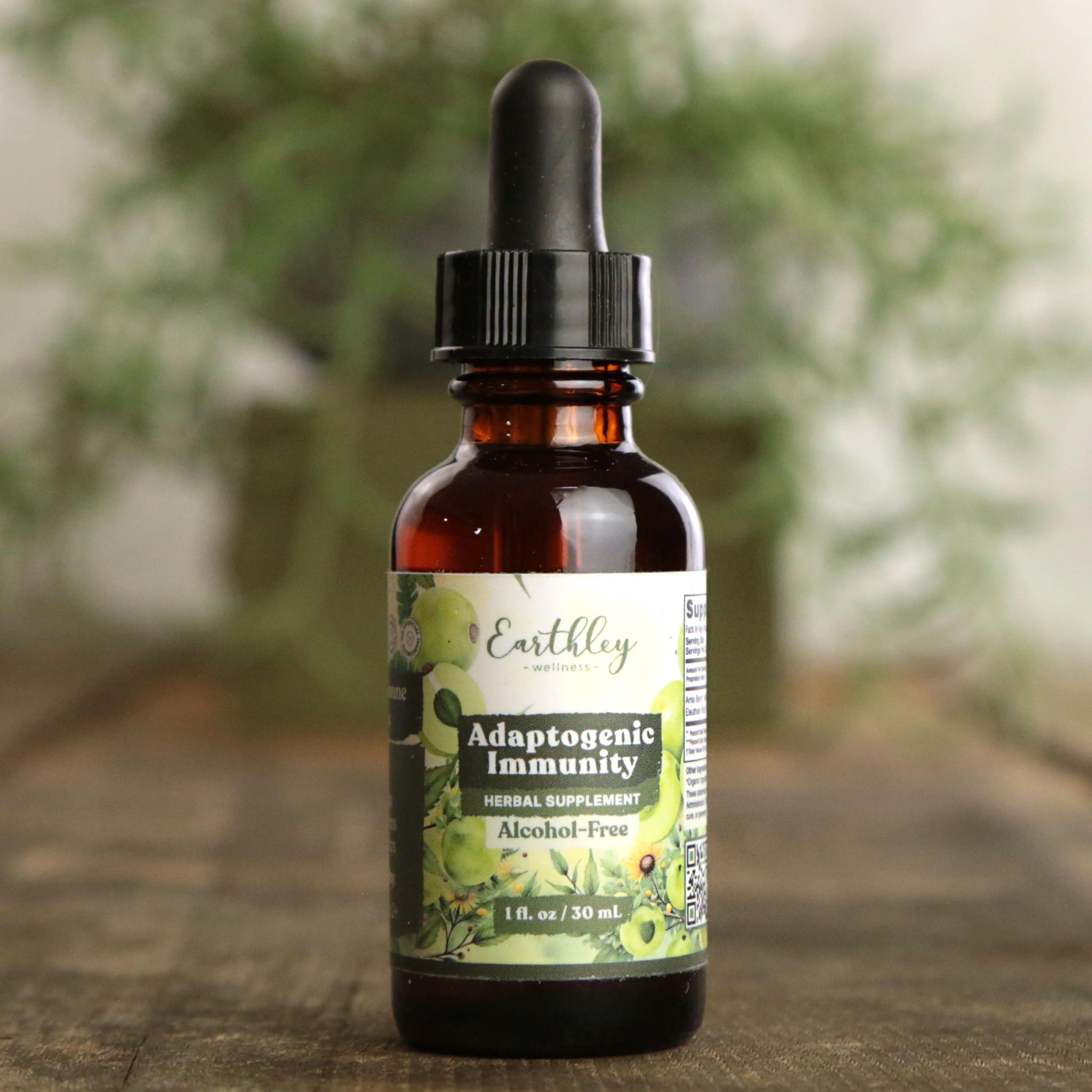
For daily stress and immune support
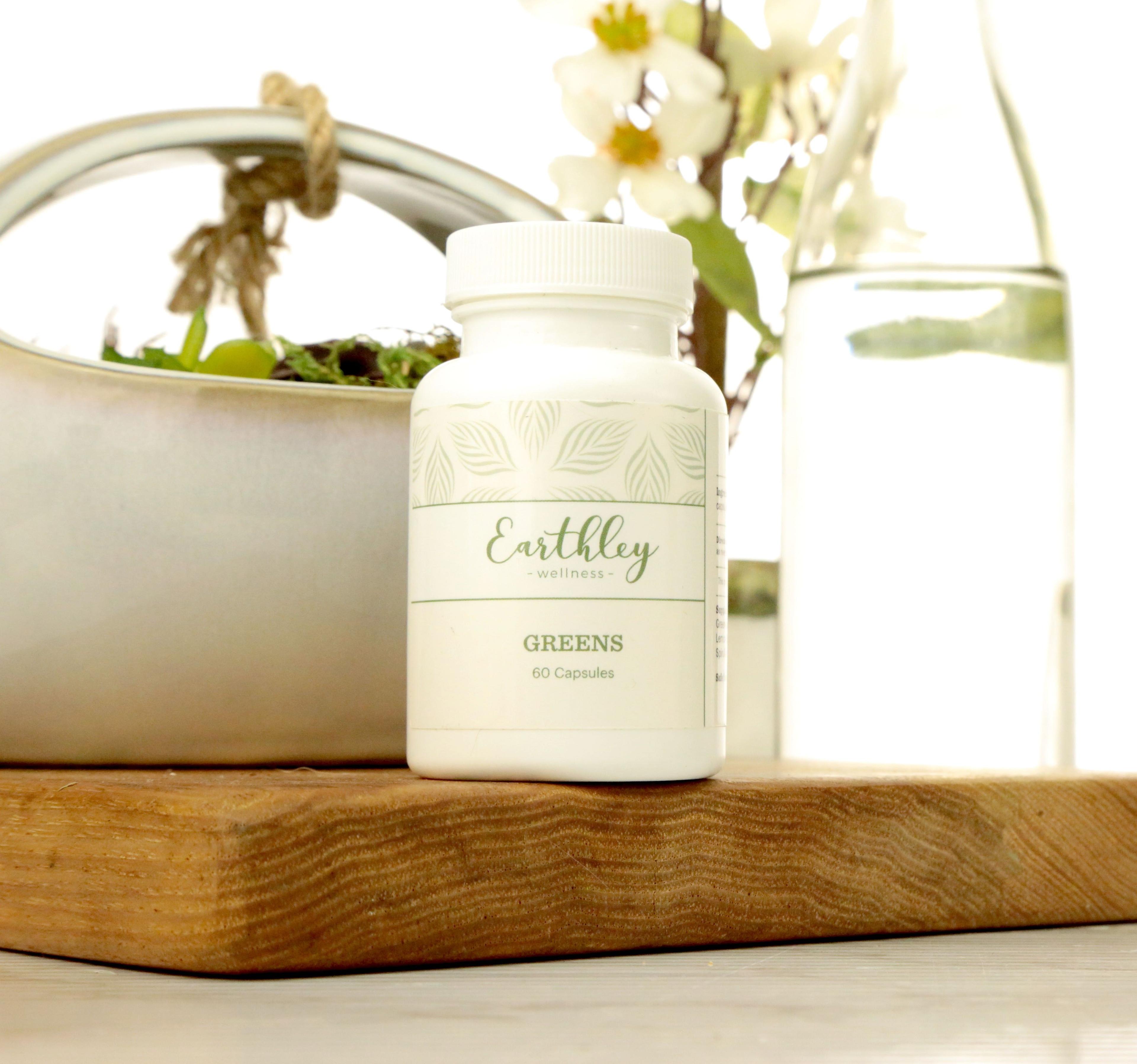
Provides natural energy and balanced nutrition
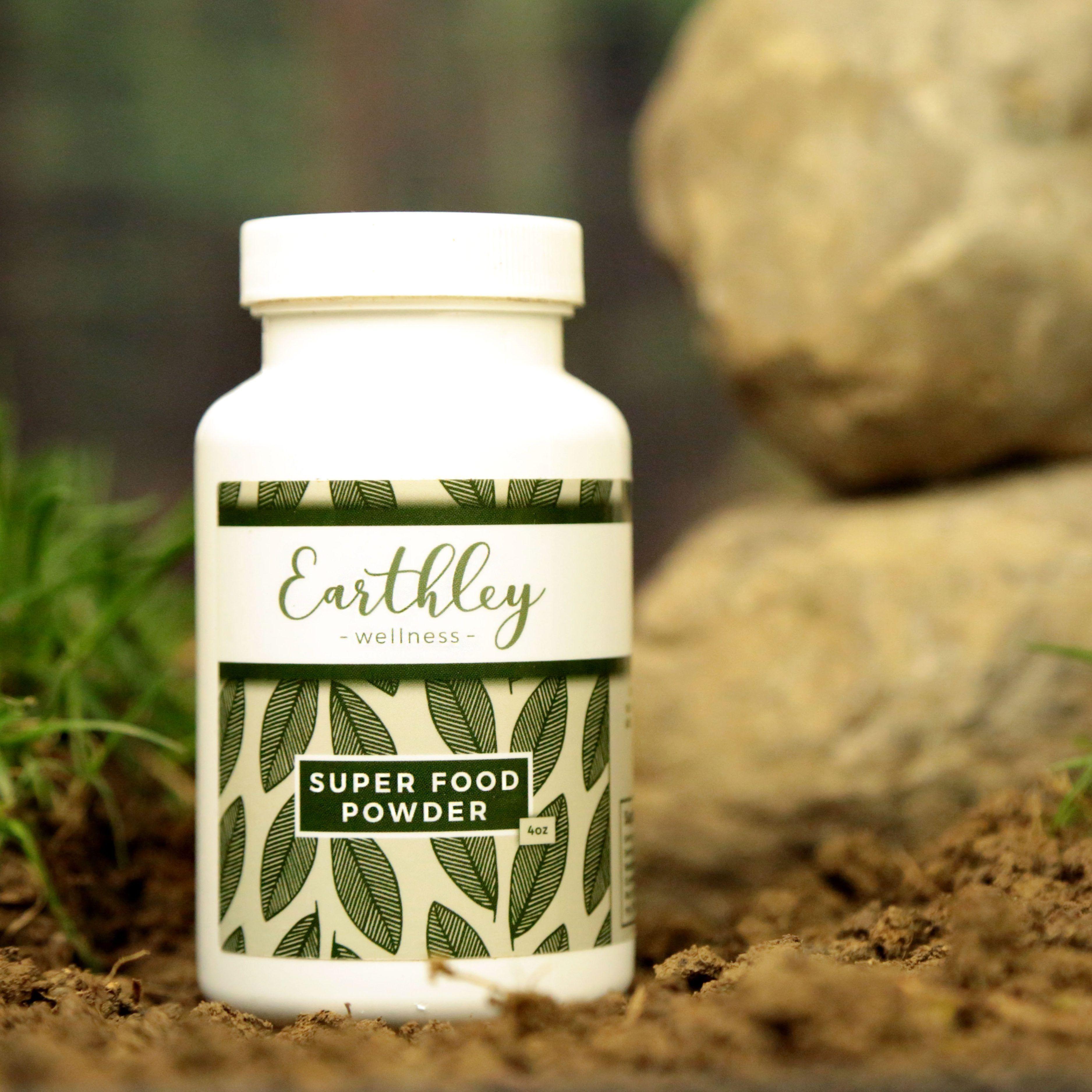
Promotes energy, gut health, and immunity with the nourishing power of plants
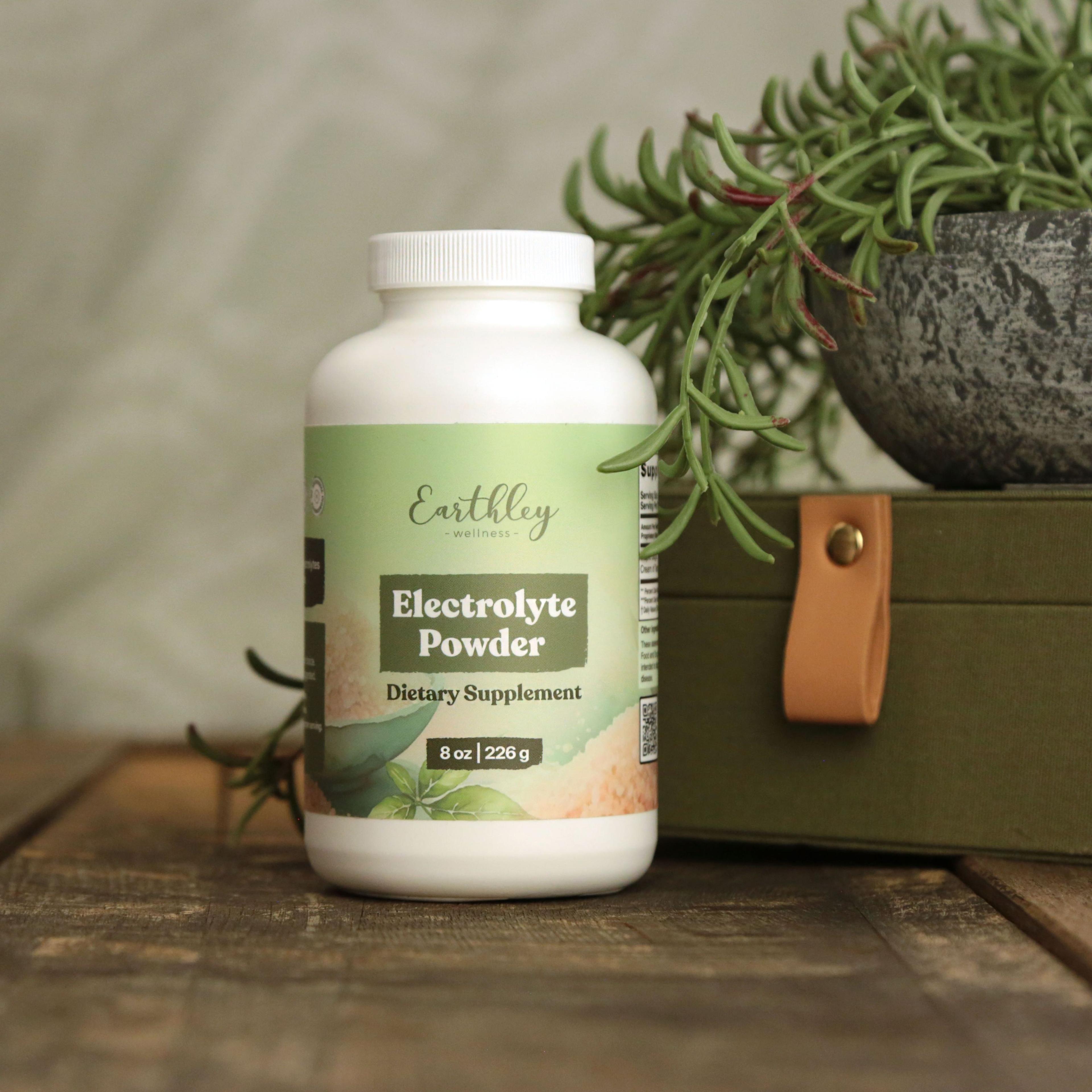
To hydrate with natural electrolytes during endurance or illness
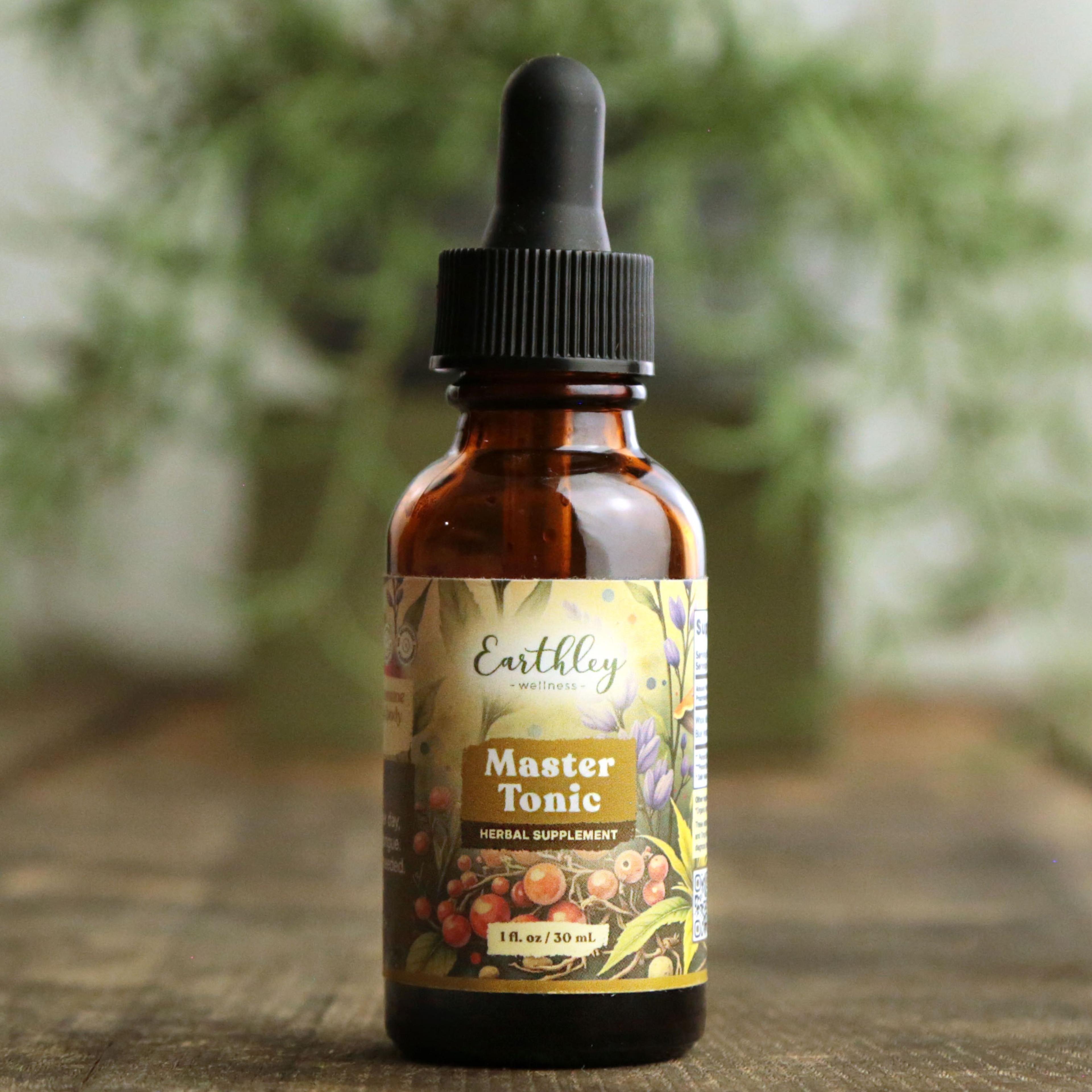
For adrenal and immune support, and total body wellness
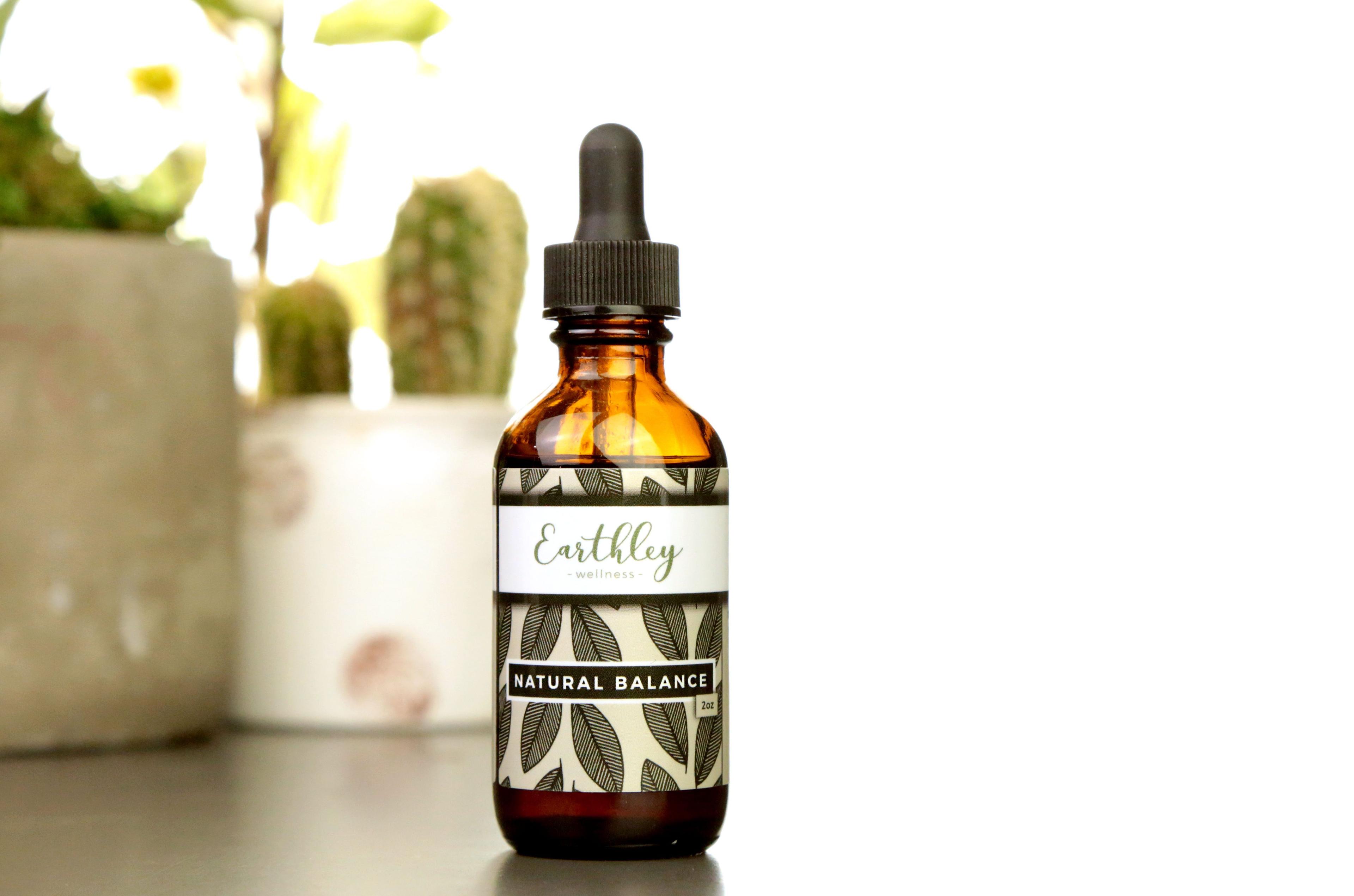
For hormone and energy support.
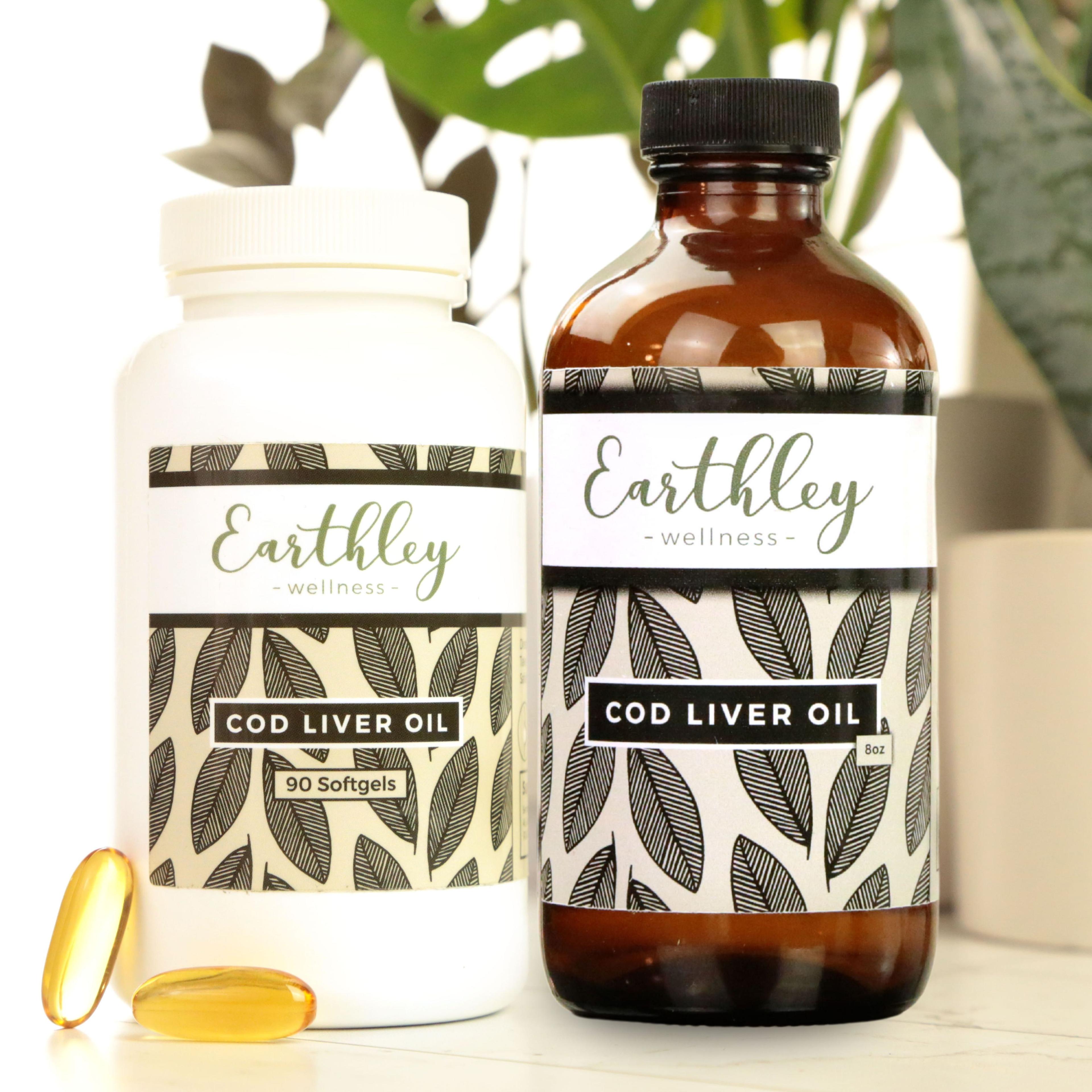
A rich natural source of vitamins A and D and omega-3 fatty acids that support immune, brain, and gut health
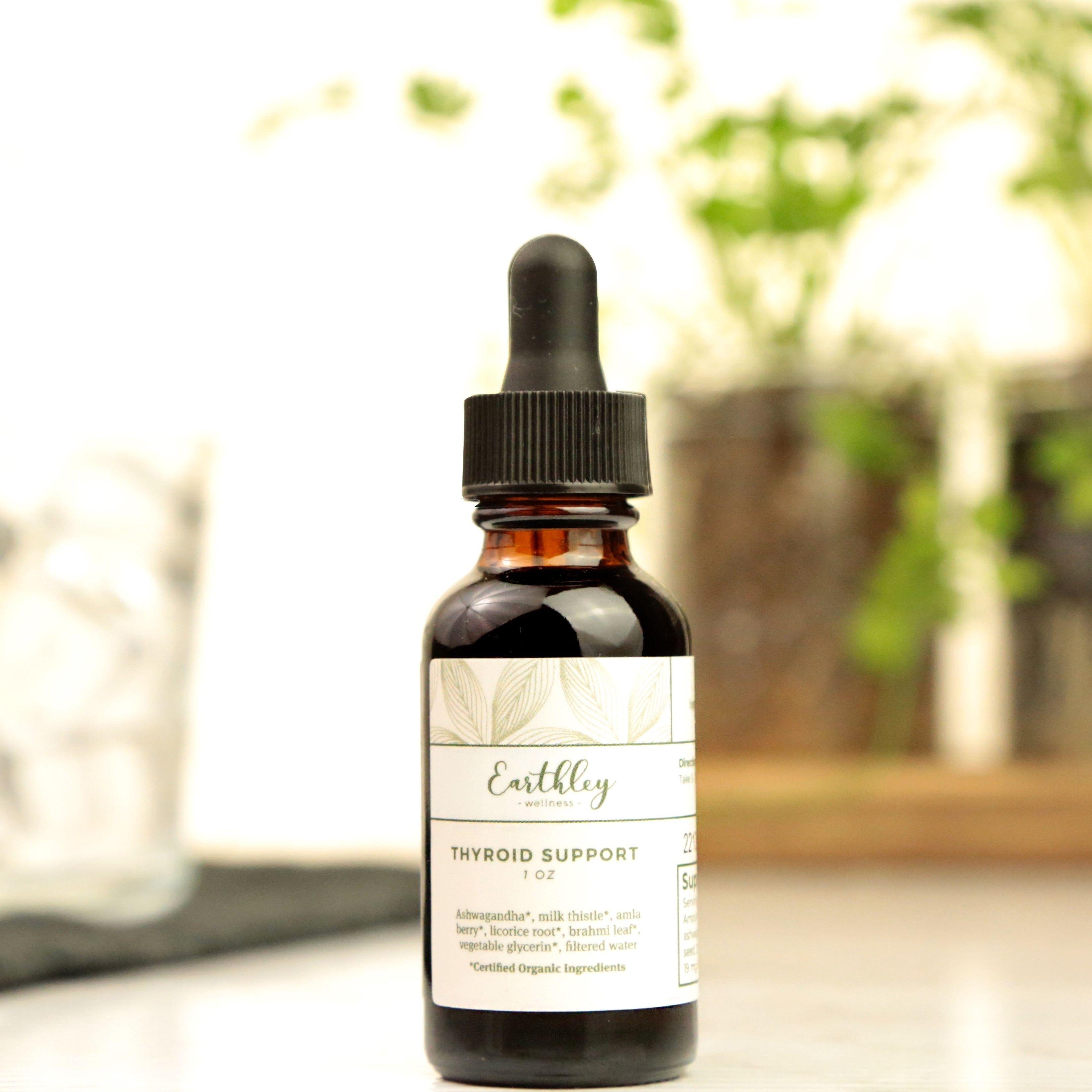
For special metabolic support — Supports healthy thyroid function, encouraging a sluggish thyroid by supporting the immune system and nourishing the body
References:
1.The 6 Hidden Culprits Behind Hormonal Imbalance (You Need to Know) - The Health Institute https://thehealthinstitute.com/2025/02/19/the-6-hidden-culprits-behind-hormonal-imbalance-you-need-to-know/
2. Understanding the 4 Phases of Your Cycle (and How to Eat for Them) | Earthley Wellness | Earthley Wellness https://earthley.com/earthleys-blog/phases-of-cycle
3. Stress and hormones - PMC Can Stress Cause a Hormone Imbalance, Dr. Jolene Brighten NMD, FABNE https://pmc.ncbi.nlm.nih.gov/articles/PMC3079864/
4. Hormones: What They Are, Function & Types, Cleveland Clinic https://my.clevelandclinic.org/health/articles/22464-hormones
5. Is Stress Good for You? An Expert Breaks Down 3 Different Types — And How to Manage Them - The American Institute of Stress https://www.stress.org/news/is-stress-good-for-you-an-expert-breaks-down-3-different-types-and-how-to-manage-them/
6. What is HPA Axis Dysfunction + 7 Steps to Heal HPA-D, Dr. Jolene Brighten NMD, FABNE https://drbrighten.com/hpa-axis-adrenal-fatigue-and-dhea/
7. What the Latest Reports Say About Stress in America - The American Institute of Stress https://www.stress.org/news/what-the-latest-reports-say-about-stress-in-america/
8. The Gender Wage Gap Endures in the U.S. | Pew Research Center https://www.pewresearch.org/social-trends/2023/03/01/the-enduring-grip-of-the-gender-pay-gap/